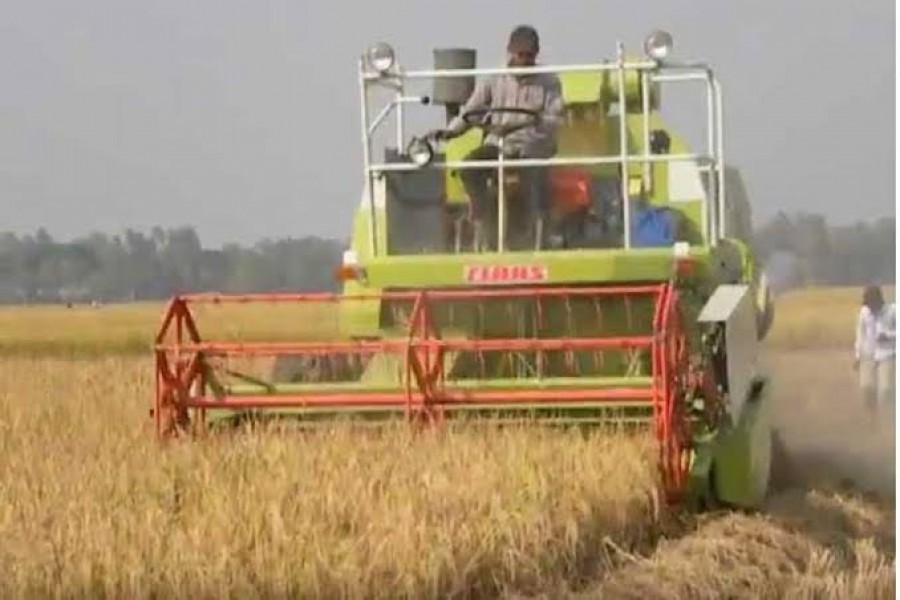
Published :
Updated :

The country's agriculture has undergone a radical change in form, range and scope. It has been a highly satisfactory journey for the country's farming from the mainly traditional paddy cultivation to that of an array of high yielding varieties. Of late new dimensions ---one after another --- have been added to agriculture by introducing vegetables, fruits and even flowers ---some of them exotic. The reason behind this diversification of agricultural basket is production of enough staple to feed a population that has more than trebled since before the country's independence. Thus replacement of the traditional varieties of paddies by the high yielding varieties developed in laboratories of rice research institutes both at home and abroad was an overriding compulsion rather than a mere commercial consideration. Yet apart from the use of pump for irrigation and tractor for ploughing, mechanisation of agriculture remained more or less out of the question.
In recent years, though, there has been a paradigm shift in agriculture with farm labour becoming short in supply. In a sense, this is a development for the better. It shows that labourers have better options elsewhere. Although it sounds anachronistic in a small country with approximately 170 million population, it is a fact that even paddy harvesting suffers due to shortage of farm hands. So, demand for increased mechanisation is growing from farmers at the field level. Now not only harvesters but also sowing, weeding and threshing machines have started their appearance on crop fields in this country. Admittedly, these are limited in numbers but the vista is more likely to change soon, particularly with educated youths taking up agriculture as a vocation. Already some young men have made their successful debut in the agriculture sector. There is no reason why their success will not inspire others to follow them.
However, their endeavour has to be complemented with farm mechanisation. One of the preconditions for this is, of course, the entry of people in the sector, who are expert in technology and technical matters. The government seems to be well aware of this fact and, to go by a report published in this newspaper on Sunday, it is going to create 284 new posts of agricultural engineers to help speed up the process of farm mechanisation. Indeed, their attachment with the Department of Agricultural Extension (DAE) will prove to be a boost to the sector. Theirs is not just a role of looking after the machines in use but also providing advisory support in various ways.
The agriculture minister is on record saying that the government has taken up a mechanisation project for the agriculture sector at the cost of Tk 30 billion. This is indication enough of the seriousness of the government in beefing up farm mechanisation. For the agriculture engineers this will be a tremendous opportunity to prove their worth. Apart from suggesting introduction of machines, they will have to offer their advice for maintenance of the farm implements. Additionally, they may contribute by making good use of their knowledge in areas like development of infrastructure for preservation of seeds, storage of grains, processing of agriculture produces. In short, their role for agro-industrialisation ---which adds value to farm produces ---will prove crucial.


 For all latest news, follow The Financial Express Google News channel.
For all latest news, follow The Financial Express Google News channel.